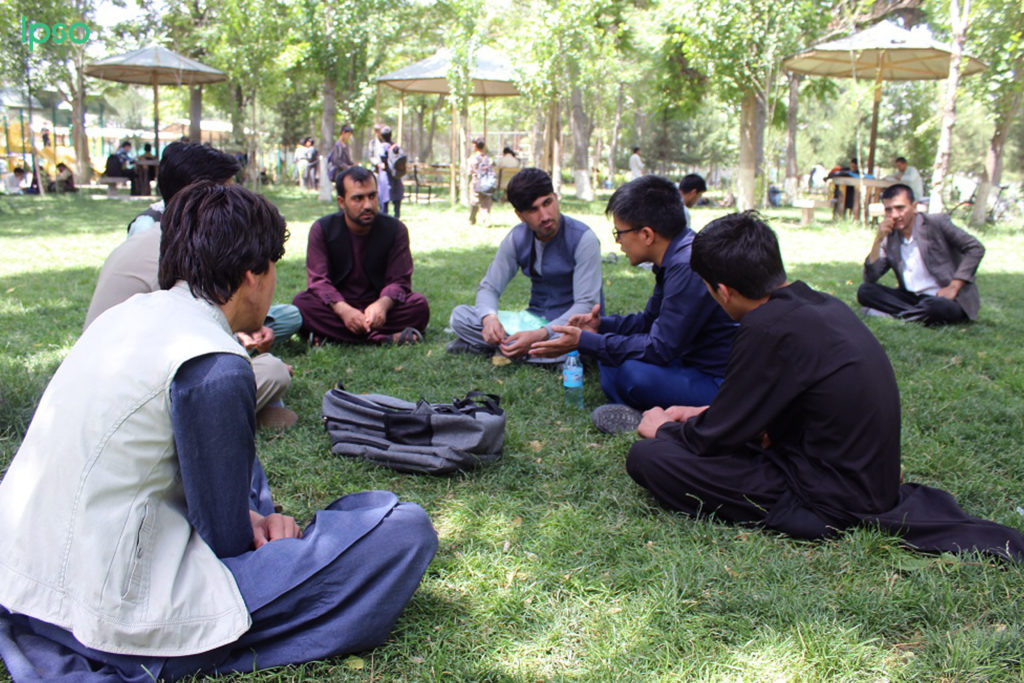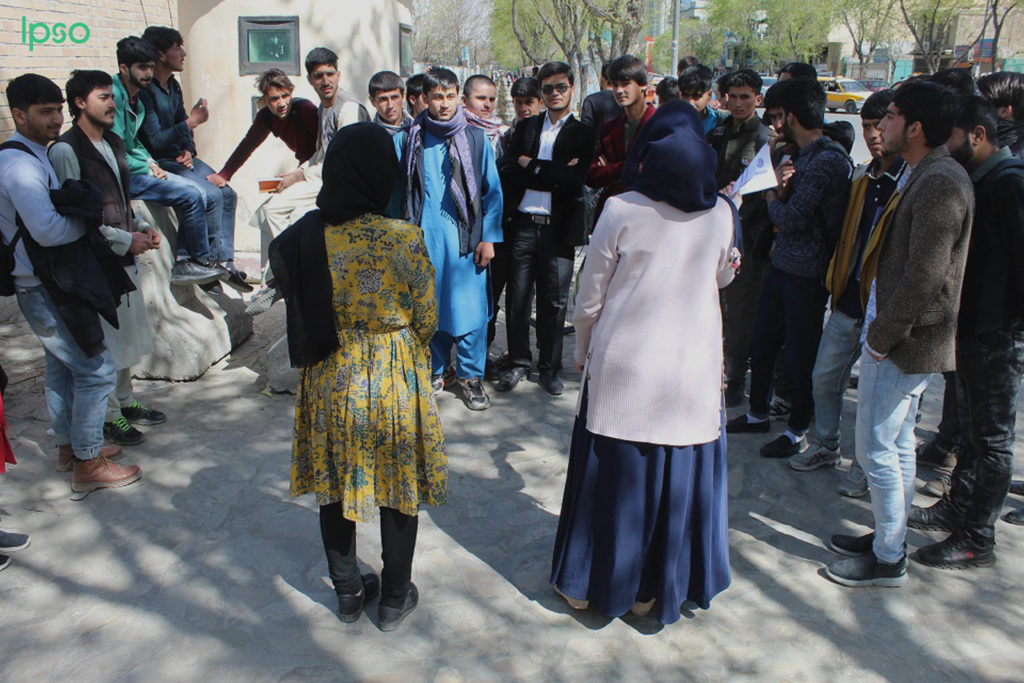Zaman Amiri, aged 20, grew up in a traditional rural community in the remote district of Waras in Bamiyan province in central Afghanistan, an area also known as Hazarajat. Until his late teens, he had not travelled beyond the village where he’d been born, inhabited mainly by Hazaras like himself. “My world was our village and my horizons went no further than the school I attended there, and whose students were all close relatives of mine” Zaman explains.
He was 18 before he learned that there also Pashtuns and Tajiks, but he’d never met one until then. “I am not unusual” Zaman says, adding “there are thousands of youngsters like me who do not meet people from outside our community unless we travel out. Our area is so remote and mountainous that this can be a challenge. I had heard a lot about Pashtuns, but never met one until I left Waras. I was always curious about the wider world and keen to discover if it fits the image I had in my mind.”
In 2019, Zaman came to Kabul to continue his education after passing the university entrance exam, like many other Afghan students who grew up in remote parts. Not only did he experience culture shock on his arrival in Kabul, but he also found it very different from what he’d imagined. “I was taken aback – and initially troubled by – the fact that there were students from every corner of Afghanistan at Kabul University.”
Zaman did not make any friends among his fellow-students for quite some time, and hung out with those who were also from Waras or nearby districts. In time, however, he sat in class beside Meraj al-Din, a young Pashtun from Wardak, a province adjoining Zaman’s home in Waras district. Zaman was uneasy, remembering how his mother, when he cried as a child, would say, “Be quiet, or the Afghans (how Hazaras referred to Pashtuns) will come for you.” As he grew up, he’d heard tales from his father and village elders about past wars and grievances between ethnic groups. Even as a student, Meraj’s beard made him think of the extremists of which he’d been told.
In time, as exams loomed, Meraj al-Din turned to Zaman and asked: “I do not have the notes of this subject could you share yours with me?” Zaman was taken aback but agreed. This short conversation helped him to address his fear. He explains: “What had held me back from talking to Meraj was a strange sense of fear – not of physical harm, but rather of crossing a boundary that I’d grown up with for years, and avoided crossing because I was unaware of what lay beyond and did not know if it was safe. Like many others in my community, our fears are driven by the words and prejudices of our elders.”
Now Meraj is one of Zaman’s best friends. This took some time, and meant that they had to talk about all their fears and preconceptions for hours and hours. “After talking to him, I realized that he also had a negative perception about Hazara people and this had held him back from engaging with me and others at university.”
Zaman realizes that inter-ethnic conflict is part of the history of Afghanistan, but feels that this should not govern how his generation behave and interact. “We are not responsible for the behavior of our ancestors. Today, ethnic groups are more interdependent than ever, and youngsters need to rise above the past and ensure that we get to know and respect each other.” Zaman concludes.















